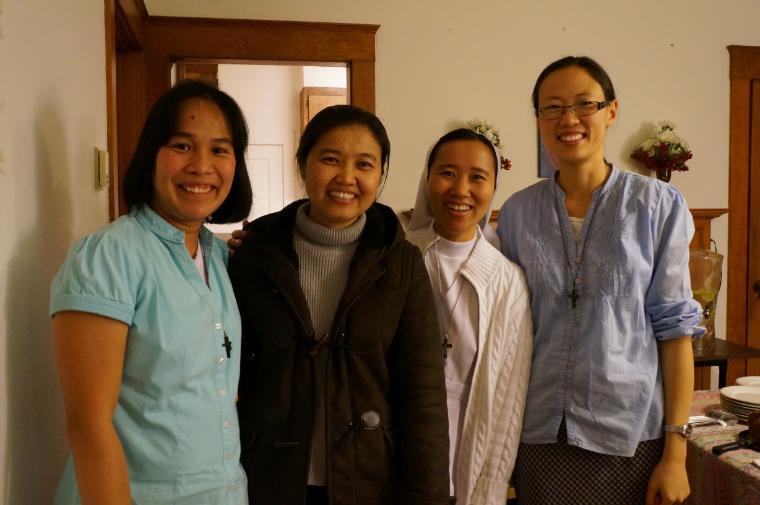
Celebrating Women of Wisdom and Action
The Jesuit School of Theology is grateful to Prof. Julia Prinz, V.D.M.F., for her leadership and scholarship as the Director of the Women of Wisdom and Action Initiative, which now comes to a close with the conclusion of its grant through the Hilton Foundation. The WWA Initiative provided theological leadership training and networks for women religious across Asia to become change agents in their home communities and society. The initiative was a joint effort between Verbum Dei Missionary Fraternity, the Jesuit School of Theology, and the Society of Jesus.
This initiative was established to enhance the vitality of consecrated life of women in Asia by increasing theological competence and confidence and through growing and developing an autonomy of networks among women religious. Over the four years of this initiative, twelve women religious from across Asia, including China, Myanmar, India, the Philippines, and Vietnam, came to complete graduate degrees at the Jesuit School of Theology. While at the Jesuit School of Theology, these women religious lived together in community while pursuing ecclesiastical degrees, including the Licentiate and Doctorate in Sacred Theology.
While the program officially comes to a close, its legacy will continue to live on in the work and scholarship of the WWA alumnae, both in their continued ministries and the legacy of their presence and scholarship at JST. After completing their doctorates in Sacred Theology, two WWA and JST alumnae currently teach theology in graduate level institutions in India. Sr. Fabian Jose teaches at the Jnana-Deepa Vidyapeeth Theological Seminary in Pune, India, and Sr. Shalet Mendonca teaches at the Inter-congregational Seminary Mater Dei in Goa, India, while also serving as Tertianship Director for her community. Prof. Prinz notes that all WWA alumnae return to their communities to serve in leadership positions, whether as a superior of their congregation, as formation director, or in leading ministries run by their congregations, such as hospitals.
Discussing what she sees as the importance of the program, and why theological training is so vital for women religious, Prinz shared that for women religious who completed their studies at JST through the WWA program, “theology is no longer just a catechetical theology, which gives answer and responses, and knows everything. Theology has become a tool and a way to analyze and ask questions that are oriented towards meaning and agency. It provides the sense of how to give the women they minister to and work with more agency; how to give women in their communities and societies more agency.”
Prinz continue, “And so in the moment you teach somebody critical analysis, in and through theology, you have impacted the whole community. To theologically educate women religious is to make them agents of social change. And women religious are at the center from where these communities are energized to do social work.”